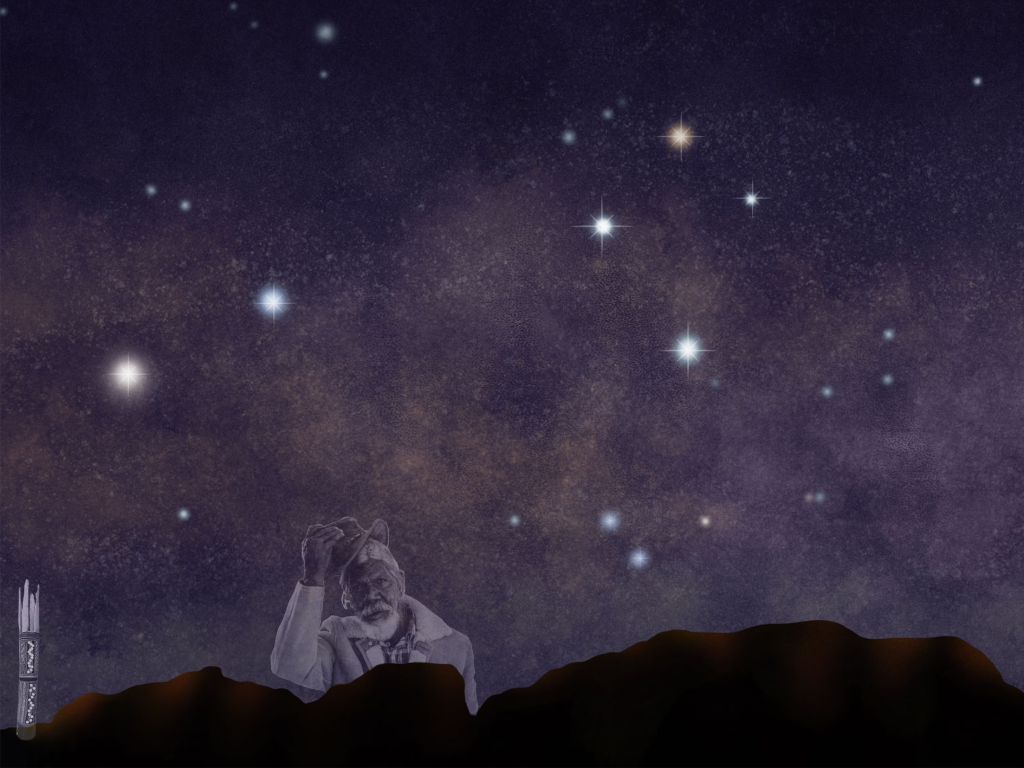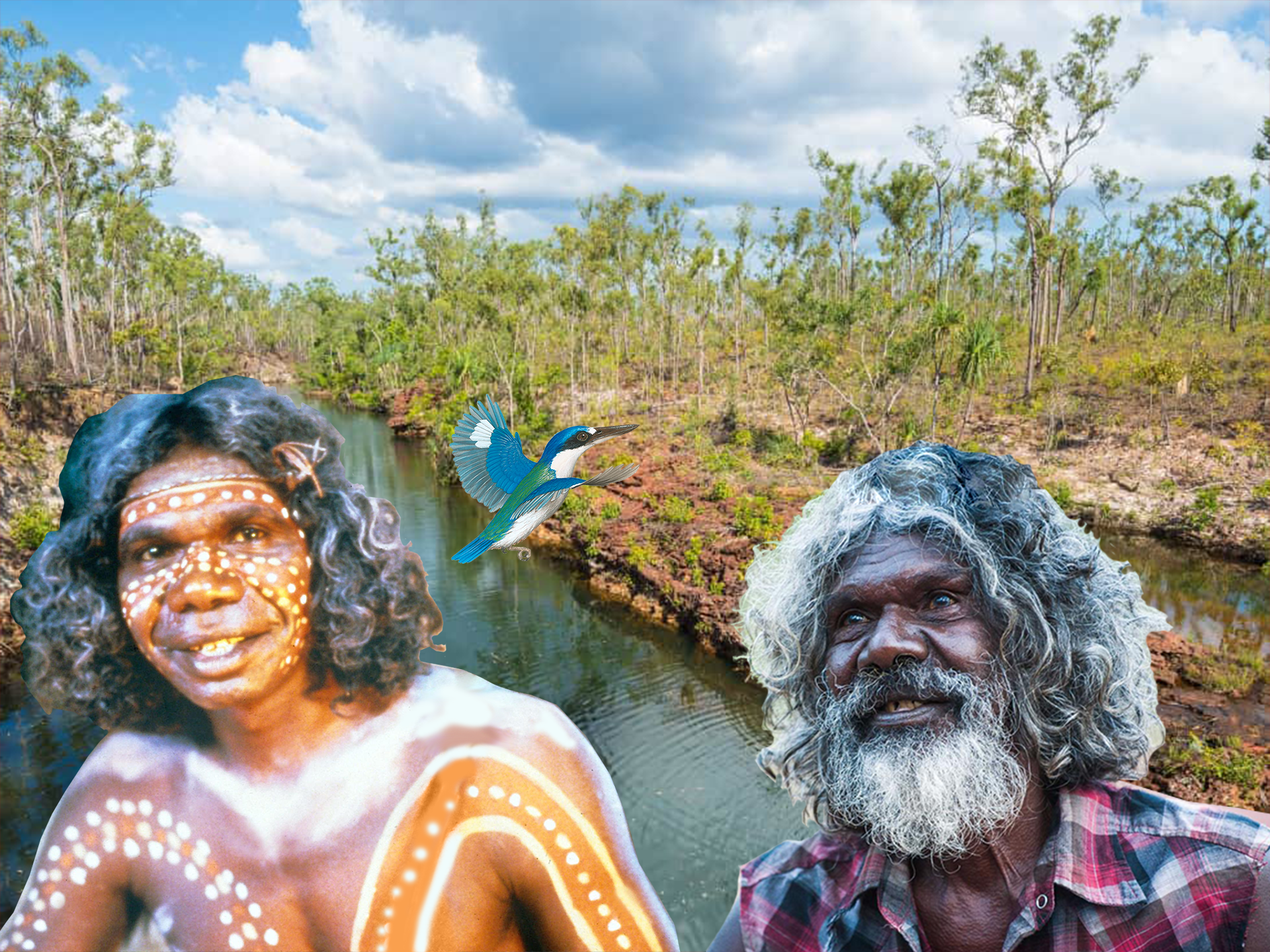‘Aboriginal Race’ remote communities are artificial townships that breed abuse
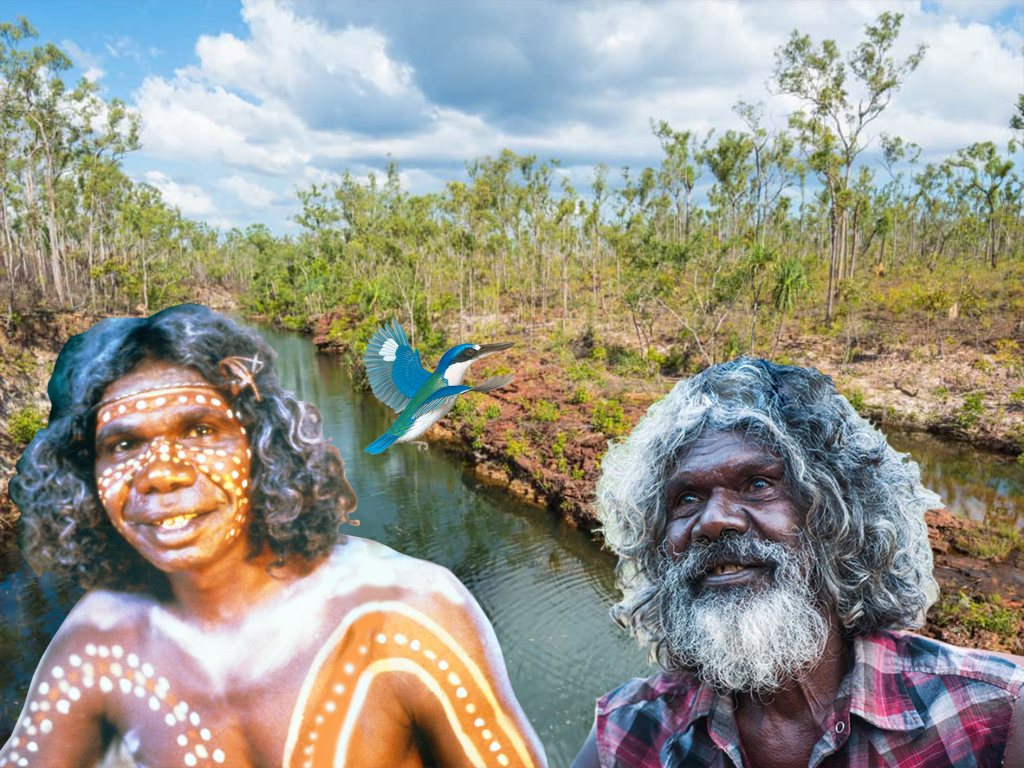
The First Nations cult’s ‘Aboriginal Race’ remote communities in Australia are artificial townships where English, Australia’s national language, is not the first language taught or spoken.
A civil society is the ecosystem of a peaceful, empowered, and prosperous community.
In any civil society people need to be able to speak the same language to support engaged young people, to inspire leaders, to foster common good activists, and to encourage exploring pioneers.
Australia’s national language, English, is spoken by 1.452 billion people around the world. Yet, in a more primitive culture on the island just above the Australian mainland, that being Papua New Guinea, a record 840 languages are spoken. In Bali many of the local people cannot communicate with their fellow countrymen as they do not all speak a common language.
For the purpose of indoctrination, from 2024 a specially selected number of ‘Aboriginal Race’ languages will be tutored in New South Wales schools taught by specialist teachers at the schools which choose to participate. NSW, one of six states of Australia is a place where more than 35 Aboriginal Race Language groups, and more than 100 dialects of those languages exist through cultural propaganda programming.
Most children in today’s Australian society would never have a practical need to use an ‘Aboriginal Race’ language and this sort of curriculum nonsense is a scar and financial burden on our education system and our society as a whole.
Is the Australian national language of English going to be muddled and replaced by dialect languages that are only known of today because of British settlement in 1788 and the linguists that came to dissect and record them?
At the time of British settlement of New South Wales in 1788 there was no written local native language anywhere on the Australian mainland or on the island of Tasmania.
The First Nations cult’s Aboriginal Race remote communities in Australia are artificial townships.
In a multi clan community each mob speaks their own language with Australia’s national language, English, being the third or fourth or fifth language learnt and spoken.
Each local native mob is loyal to their own group, traditions and social structure rather than to the community as a whole. The upshot is that disputes between mobs are countless, and rivalry flourishes. There is no demonstration of pride in living quarters or much else.
It is no secret that life experienced in every remote community has included: poverty, degradation, substance abuse, domestic violence, gang warfare, incest, paedophilia, and ill-health.
Nothing to be proud of.
Today, Australia’s remote communities accommodate around 20 per cent of the 896,300 ‘indigenous Australians’ based Australian Bureau of Statistics estimates for 2022. Around 180,000 people.
There is no private rental or home ownership in local native remote communities. Public housing is the only choice in these artificial towns. As people move from house to house the residents can be classified as homeless. Living in someone else’s house with too many people food runs out, sickness is easily shared, and everyone has a hand in caring for the little ones.
The emotional stress breaks out into physical violence.
David Gulpilil, romantically stated as being born under a tree in 1953, was a local native with dark skin pigmentation and has been described as a charismatic, mesmerising, loose-limbed presence. His birth date is guesswork estimated by missionaries. He died in 2021.
Until David was around 12 years old he grew up the bush in Arnhem Land as the primitive stone age people did without any whitefella controls. A primitive state of nature lifestyle. Naked except for a genital apron. The clans on Arnhem Land were always on the move. They stayed in one place until the food sources were exhausted then moved on to a different regenerated area. To survive in this primitive hunter gatherer lifestyle a small population was required. In small family groups the family mobs travelled around different parts of the landscape mostly minding their own business and coming together for ceremonial gatherings.
At the campsite the wives and daughters would clear the ground of stones, twigs, and prickly grass seeds for a place to sleep on the ground. The earth was their bed. The men made fire through primitive friction. Fire was used for cooking and for keeping the local natives warm, especially at night. The dense smoke from the fires would keep the mosquitoes at bay. When it rained the men would build bark huts and the women would cover the top with grass. Sometimes the men would build sleeping platforms on stilts for a nap after daytime meals. Many local natives had burn scars on their back and abdomen where they had rolled onto the fire while asleep.
The quest for food went on all day. Survival in small groups meant they only had things from the bush.
The business of the tribe was directed by the old men. When the men became too old to fend for themselves they would take a young wife to look after them. When a clan member died they would wrap the body in paperbark and leave it on a platform to decompose until they returned to the area months later. At the funeral ceremonies the clan would paint their bodies white and have a corroboree moving around in zig zag lines while beating sticks, dancing, and playing the didgeridoo. Later the initiated men would cover the bones with ochre and push them with bark into the hole of a spirit pole decorated with the deceased dreaming. Once buried the bones were rendered harmless and the clan knew that spirit would not come back to haunt the folk still living or bring bad luck to the clan.
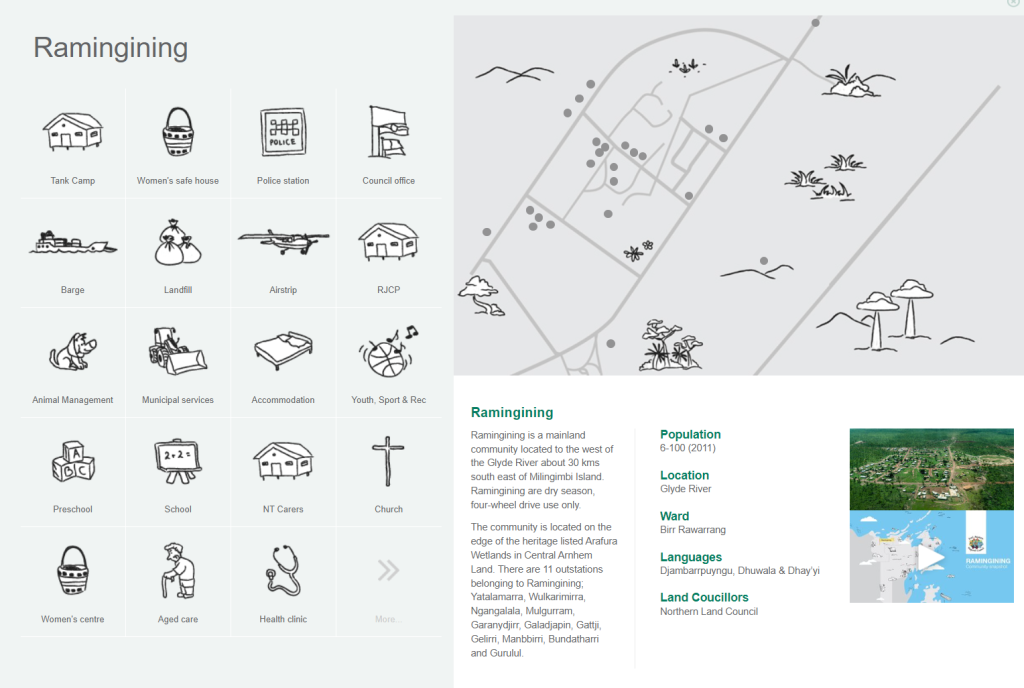
David Gulpilil’s life in a remote community centred on Ramingining in the Northern Territory, 400 kilometres from the nearest town. Inaccessible by road during the many months of the wet season. Hard after coming from a lifestyle where he says there were no bosses telling them what to do and what not to do. No Australian government. No Northern Territory government. No council. No police. No god or ‘Jesus’. No Centrelink. No Headmaster. A free lifestyle were the people could live their own way until the whitefella arrived.
The cattlemen came in and the local natives fought with them. The missionaries came in and gave them flour, sugar, tea, and tobacco. The missionaries started to try and tell them what to do. David said they did not shoot or try and poison the local natives, so they were allowed to stay. Most local natives lived in the bush the same old way. Some of the missionaries learnt the local languages and taught them how to build houses and how to read and write. They thought if they learnt the whitefella way they would be respected. Then the government came in and said you must have council. We will build you a school and store and you have to move there.
Describing an artificial town experience, David Gulpilil said it was crazy place to have a town. No work, no facilities, nothing to do, no future. It is a town that does not work the blackfella way or the whitefella way. All the food comes from one store. People live day by day with nothing to eat until the store opens. The store is the only place to spend money to buy food, clothes, furniture, toys. No one living on their own land.
Multiple clans coerced to move into the artificial town. All mixed up language. Five clans equals five languages. Not much English. All wrong for the blackfella culture. All people living together who should not live together to learn the whitefella way. Shopping money, driver’s licence, bureaucracy telling the blackfella what to do. Too much aboriginal art now. Welfare money is spent in the store then stuff ends up as rubbish. That store being supplied by the barge due once a week, if late then the store runs out of fresh food and other things too. Bad luck hey! Electricity cards from the store when it runs out no electricity. No barge bad luck.
The basic card introduced for money to be spent on what the government wants the local natives to buy. Ban alcohol and kava but not Coca-Cola. Disbanded cars and rubbish are invisible to the local natives based on the logic that everything from the bush goes back to the bush. Finish with something you just give it back it becomes part of the land again, so the artificial town is choking on rubbish.
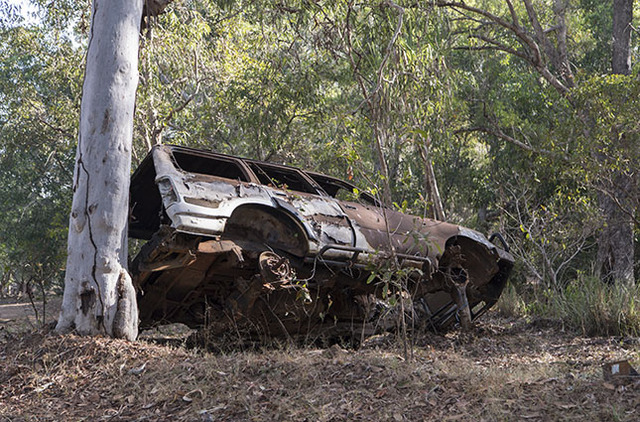
Blackfella and whitefella culture clash with money as blackfella has to share everything. Once only had food from the bush. Obligation very strong, must share money, houses, motor cars, family, absolutely everything.
Playing cards money moves around from person to person. Sometimes you get, sometimes you give. Sharing money with 500 people in one place just does not work. They got money they must share with me!
How is one supposed to save money when one has to share it all the time.
Buy a motor car someone wants to borrow it one has to give it to them. When it comes back smashed or broken or out of petrol bad luck hey. To have a motor car you have to have more money than the government hands out to you.
During his life David Gulpilil met and hung out with John Lennon, Jimmy Hendrix, Bob Marley, he danced before and he was honoured by Queens Elizabeth II the Queen of England. He also spent time in prison for hitting his wife breaking her arm with a broomstick while drunk. He won many awards and travelled the world. He has been a film actor and documentary film maker. At a point when drinking heavily he joined the homeless population know as the Long Grasses. addicted to what he called ganja, which is marijuana, and alcohol.
David Gulpilil was made a Member of the Oder of Australia in 1987, yet David Gulpilil died in Murray Bridge, South Australia a poor and sad man.
Just like Albert Namatjira before him, David Gulpilil was a man who earned good whitefella money consistently during his life and suffered financial hardship in the years before his death. He consistently gave away most of his money to members of his family and the community. All expected him to.
In 2013 it was reported that one of David’s wives Miriam lived in third world conditions. She squatted in a house that was made of tin with a concrete floor. The structure had no running water, no toilet, and no electricity. Her only furniture was an old bed and mattress that was placed in the middle of the room she slept in.
Would she have been better off living in the artificial town of Ramingining?
In artificial towns often others in the house do not accept responsibility to pay the rent, buy food, clean or pay for the power – leaving a few in the house to do it all. Bedding, plates, cutlery and cooking utensils are in short supply when many people borrow them and do not return them. No one owns anything. Young families have no opportunity to spend time together in their own space as a family unit.
A lot of the economy of Mutitjulu is derived from tourism at Ayers Rock and nearby Yulara, a small amount of which is channelled back to the local segregated community. In spite of the tourist income generation Mutitjulu is not seen as wealthier than most other remote communities. Clan members can exert arduous demands on family members for money and other resources.
The old ways support today’s elders, that being many Indigenous, Aboriginal, and First Nations ‘Aboriginal Race’ political activists. The old ways do nothing for the people who the Australian government has a responsibility to look after. That is until the under-trodden natives are given the freedom and opportunity and have a desire to look after themselves. These people are isolated by language and marginalised by a society determined to keep them prisoners for a selfish gain by a few with a claimed racial heritage.
Every Australian needs to understand that their country, Australia, gives them a choice to live a life of their own making.
Before this can happen those labelled as ‘Aboriginal Race’ people born in Australia must be taught the National language of English from the day they are born. How can one understand what is available if one has been denied access to the national language.
The elders in control say they have everything these people need to be the guardian, the chosen custodians of ‘aboriginal race’ and ‘aboriginal land’ and their cultural traditional ways. They have the contract with the government and collect most of the government dowry on behalf of their helpless people. Then they have the audacity to criticise the old time British landowners.
The elders talk amongst themselves and do not want to acknowledge that freedom from poverty in our country Australia, is a modern day reality. The ‘traditional owner’ elders’ financial reward comes from allowing ‘their people’ to live a miserable downtrodden lifestyle.
The pain is old and becoming more ingrained into inter generational beliefs and the vultures can be seen flying high in the clear sky overhead. The ‘Aboriginal Race’ political patriarchy needs to put down their warring swords. The ‘Aboriginal Race’ political matriarchy need to acknowledge their damaging sword is on top of the internal infighting of the patriarchy.
The vision of victory is seen as a light at the end of a tunnel. The clubs of the ancients used to be held in a defensive position because they knew the unknown was scary and could be dangerous. The ancients know there is nothing to fear as they are now in the light and are guiding a breakthrough by forcing a breakdown of what is stopping the peace and prosperity to come to all their multi-coloured skin descendants. A lifestyle that came to their home land when the British landed to bring civilisation to Australia, the land down under.
An Aboriginal voice to parliament will ensure that not only the ‘Aboriginal Race’ but all Australians will become poor in mind and spirit with no financial security to prosper in any area of their life.
